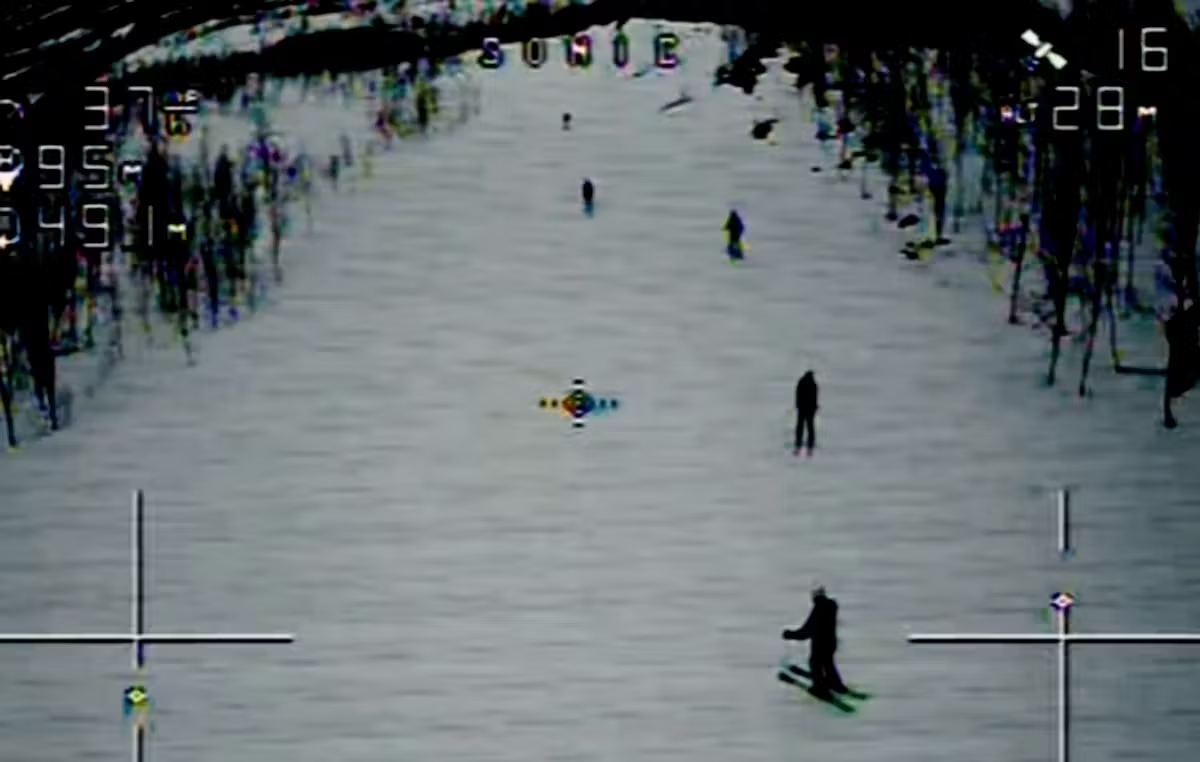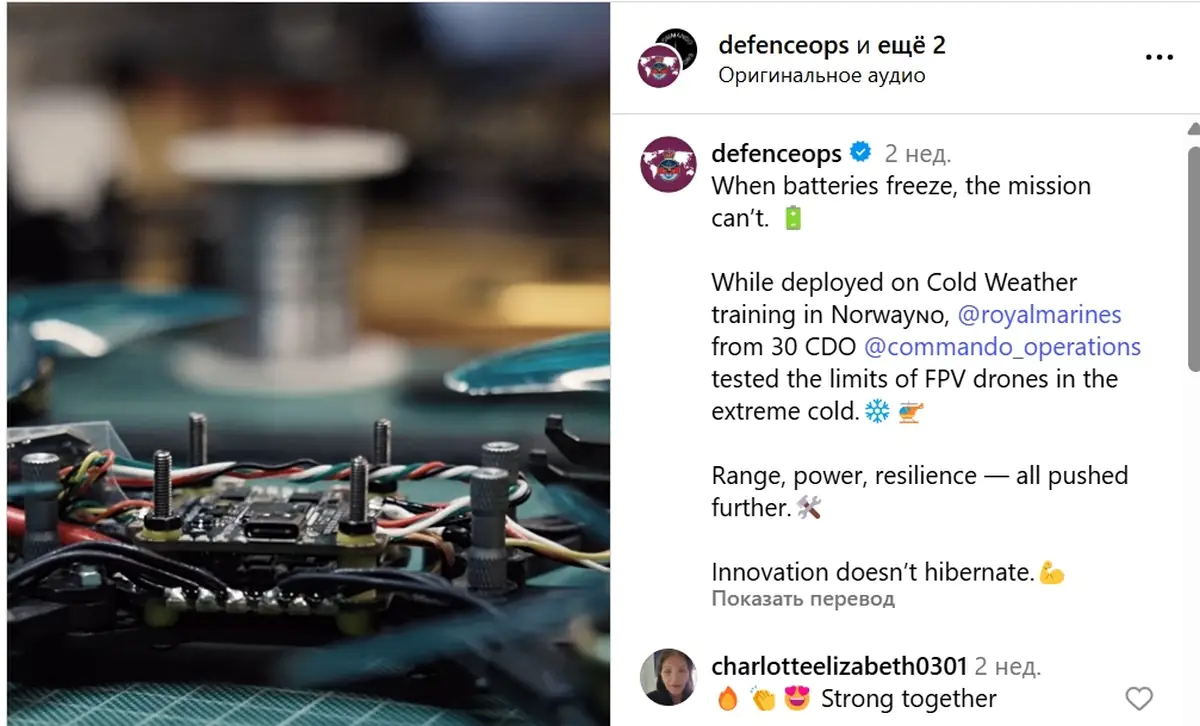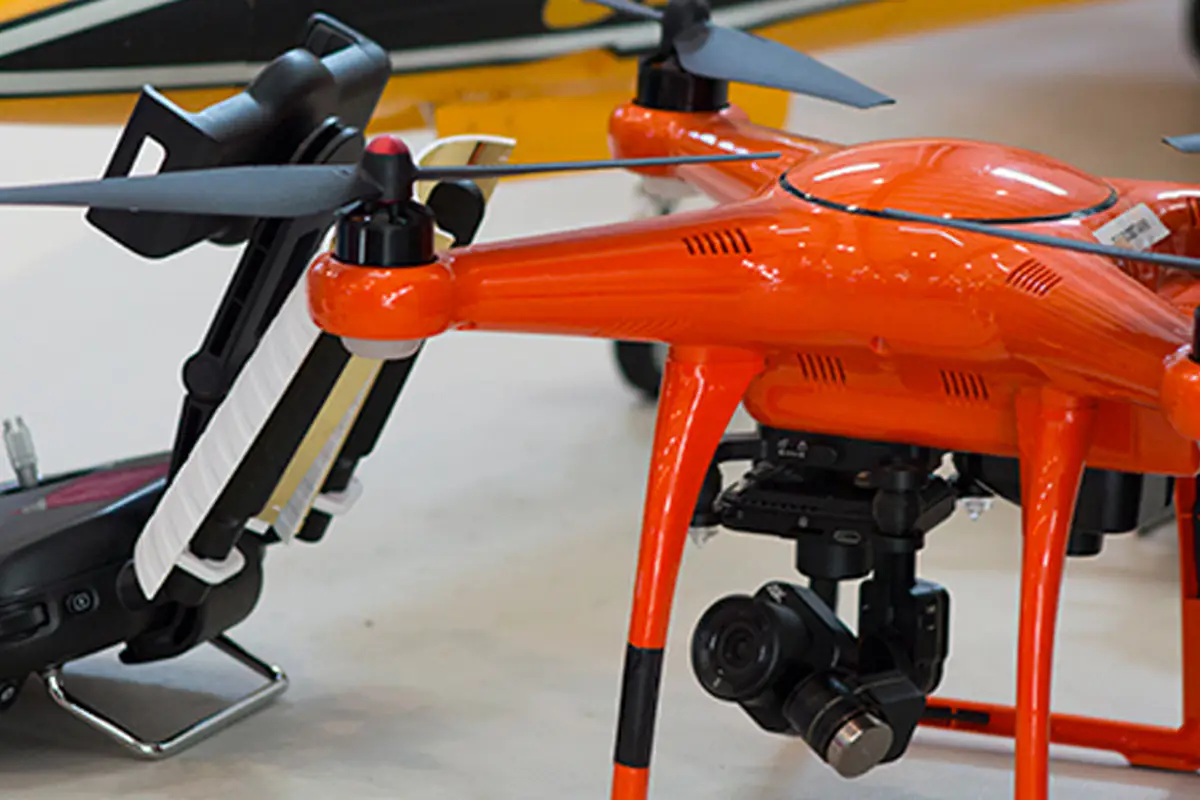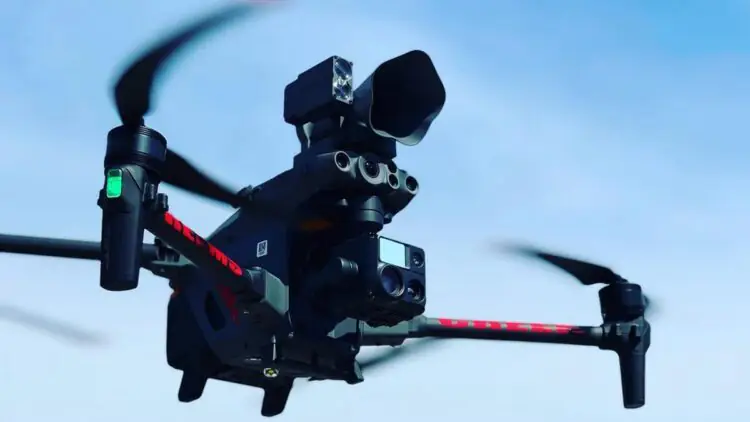Royal Marines from the UK’s 30 Commando Information Exploitation Group tested drone technologies during Cold Weather exercises in Norway, putting FPV (first-person view) drones through their paces in some of the world’s most challenging environments.
This year’s focus was on evaluating FPV drones developed under the 30 Commando DroneWorx program – an initiative aimed at equipping frontline teams with lightweight, adaptable, and rapidly deployable surveillance systems.

In sub-zero temperatures, conventional electronics and batteries are prone to failure. Cold weather drastically reduces battery life and can cause brittle fractures in delicate components. To address these challenges, the Royal Marines’ FPV drones are equipped with 3D-printed parts, enabling rapid prototyping, field repairs, and even mission-specific modifications while deployed in harsh environments.
While testing in Norway’s harsh climate, the Royal Marines gathered critical data on flight range, energy efficiency, and structural durability in extreme cold. This information feeds directly into ongoing operational development, helping ensure that the drone systems remain reliable even when deployed in the most challenging environments.

Integrating drones into Commando operations serves as a powerful force multiplier. FPV drones allow small, agile teams to extend their situational awareness far beyond direct line of sight. In environments where every movement risks detection, drones enable reconnaissance, enemy position assessment, monitoring of natural hazards, and safe route planning – all without unnecessarily putting personnel at risk.
Additionally, the modular design of the DroneWorx systems gives operators the flexibility to tailor their equipment to the mission’s specific needs, whether for surveillance, target acquisition, or supporting broader operational objectives. The ability to repair and modify drones in the field, without specialized tools, further enhances the autonomy and resilience of deployed forces – an advantage that proves genuinely valuable in demanding conditions.
This effort is part of the broader transformation of the Royal Marines under the Future Commando Force program. The focus is on developing forward-thinking, adaptable combat units capable of operating in dispersed formations, with a high degree of self-sufficiency and access to the latest in uncrewed and autonomous technologies.

The collaboration between 30 Commando, the Defence Science and Technology Laboratory (Dstl), and the Royal Navy’s innovation unit, NavyX, ensures that frontline personnel play an active role in shaping new capabilities. First-hand operational experience directly informs design improvements, helping to accelerate innovation and keep pace with the demands of modern warfare.
As threats evolve and future missions increasingly take place in extreme environments – from frozen tundras to dense urban landscapes – the Royal Marines’ work with drones is aimed at preserving their reputation for adaptability, resilience, and cutting-edge capability.
In Norway, where the cold can drain batteries and disable standard equipment within minutes, the Royal Marines have demonstrated that when a mission can’t wait, innovation can’t wait either.
Source: Ukdefencejournal









